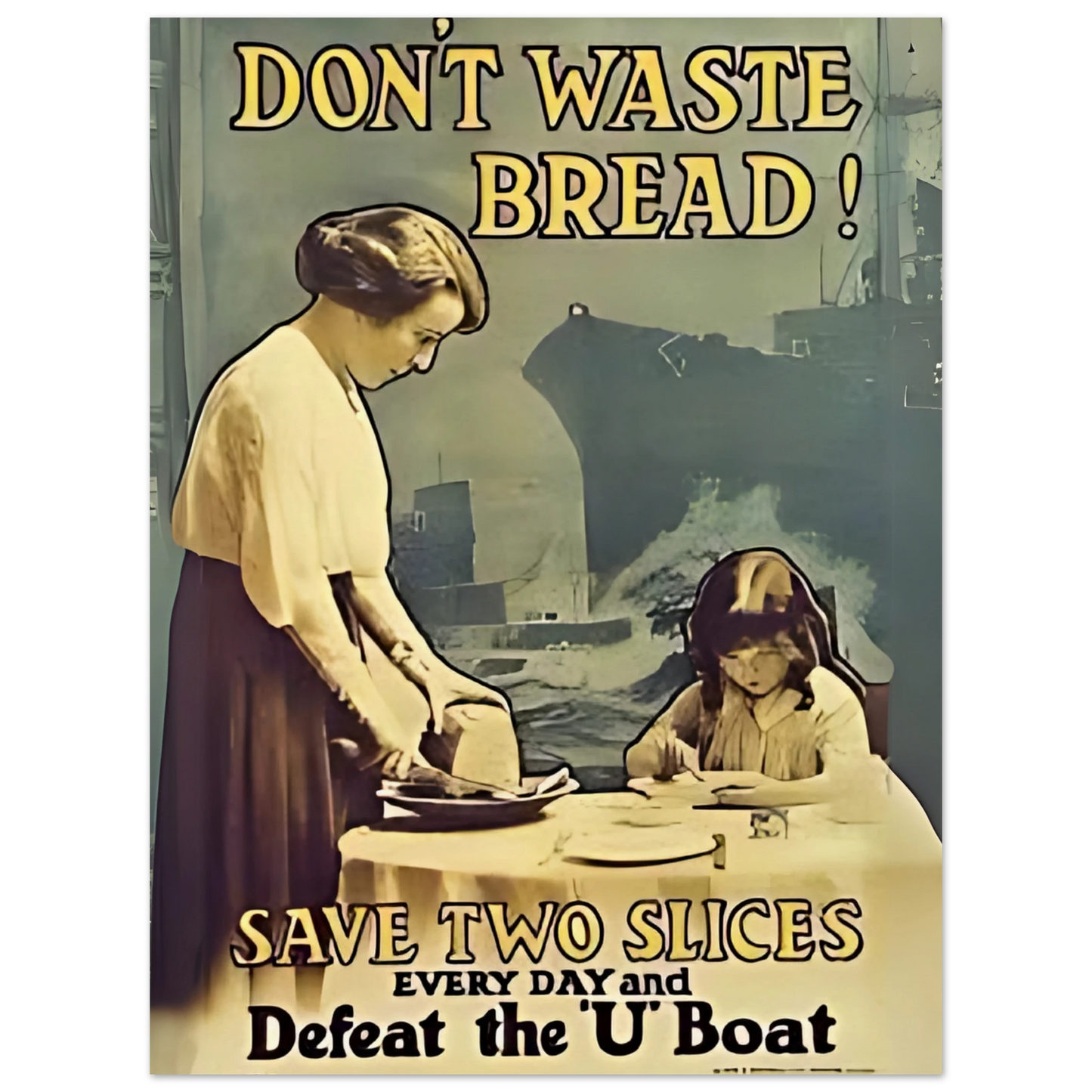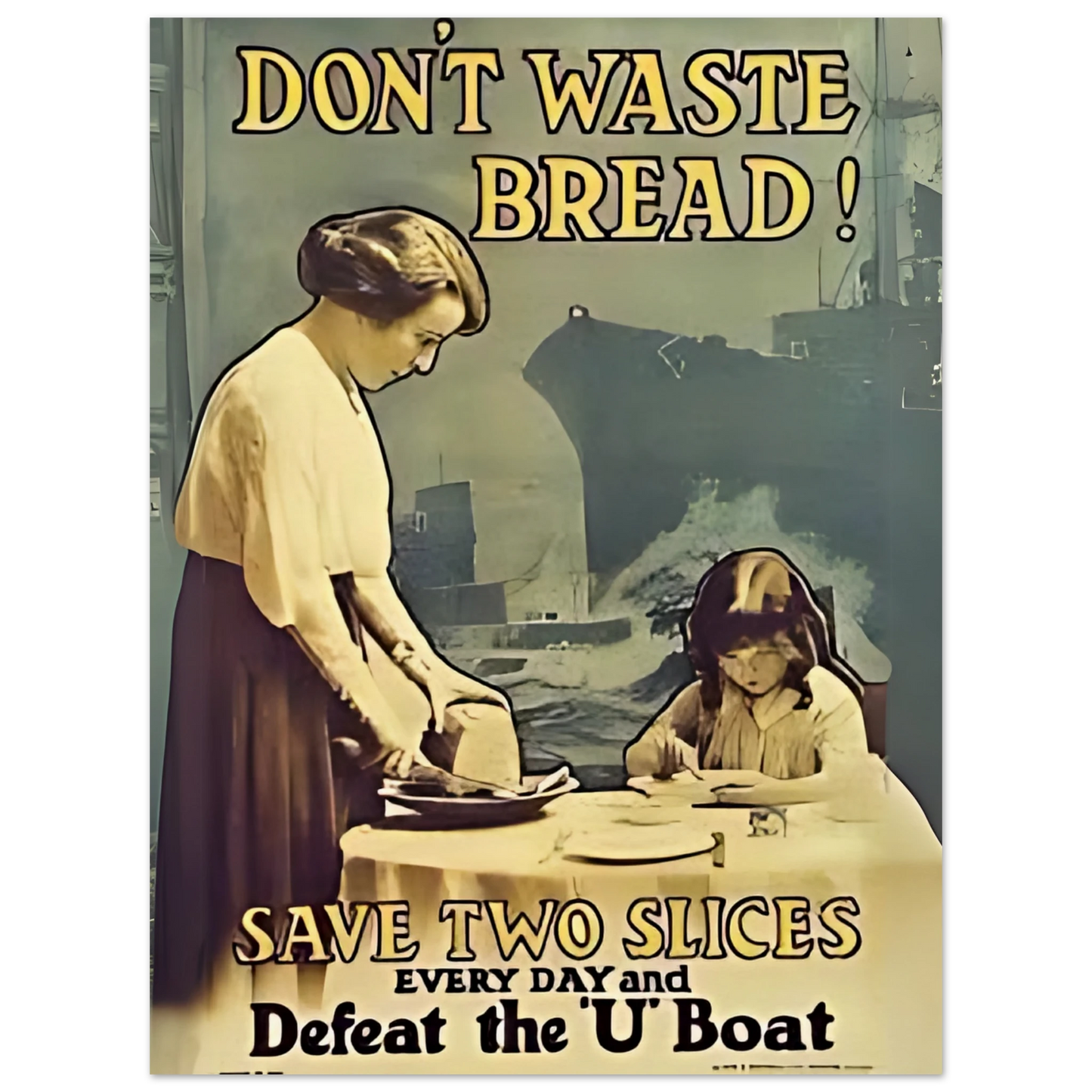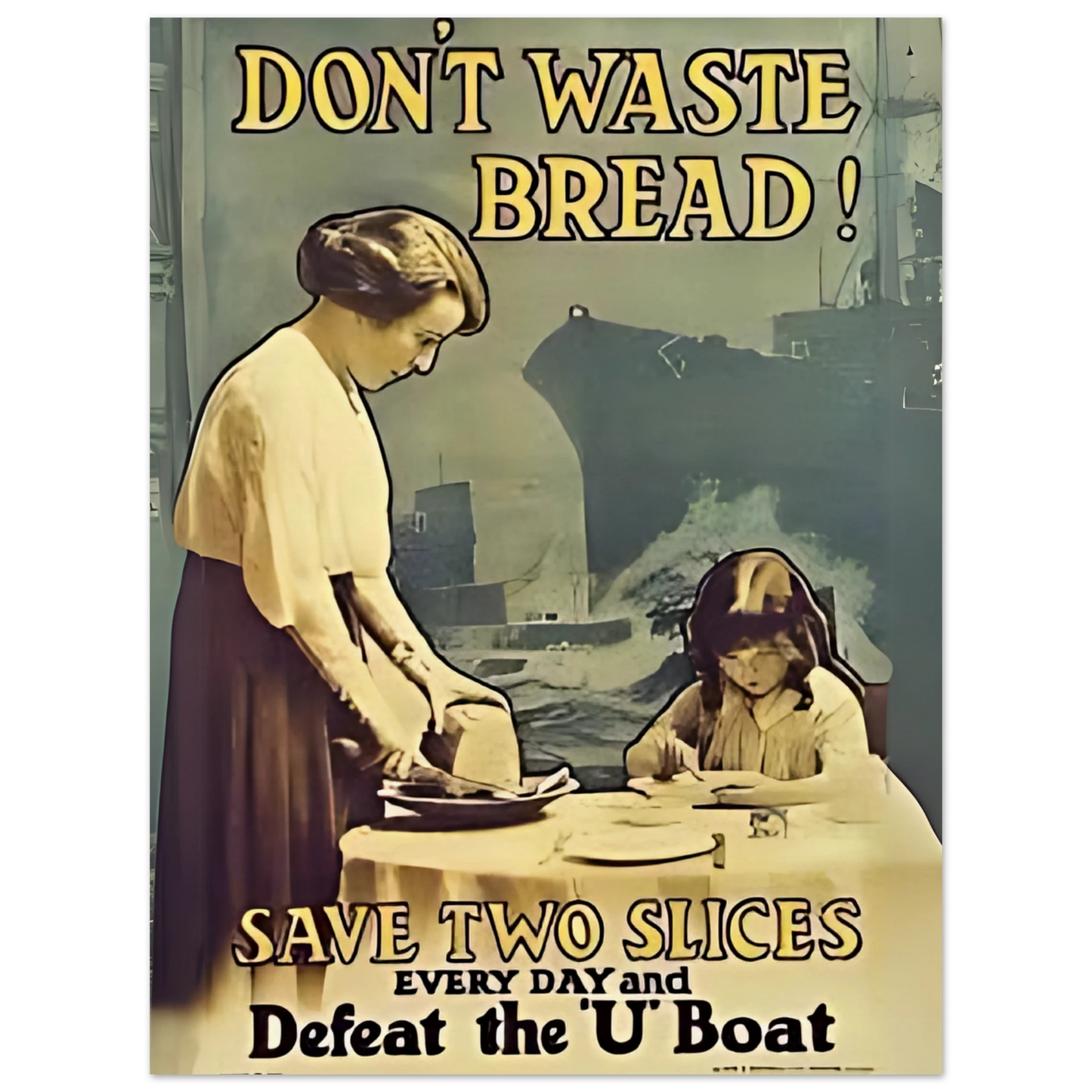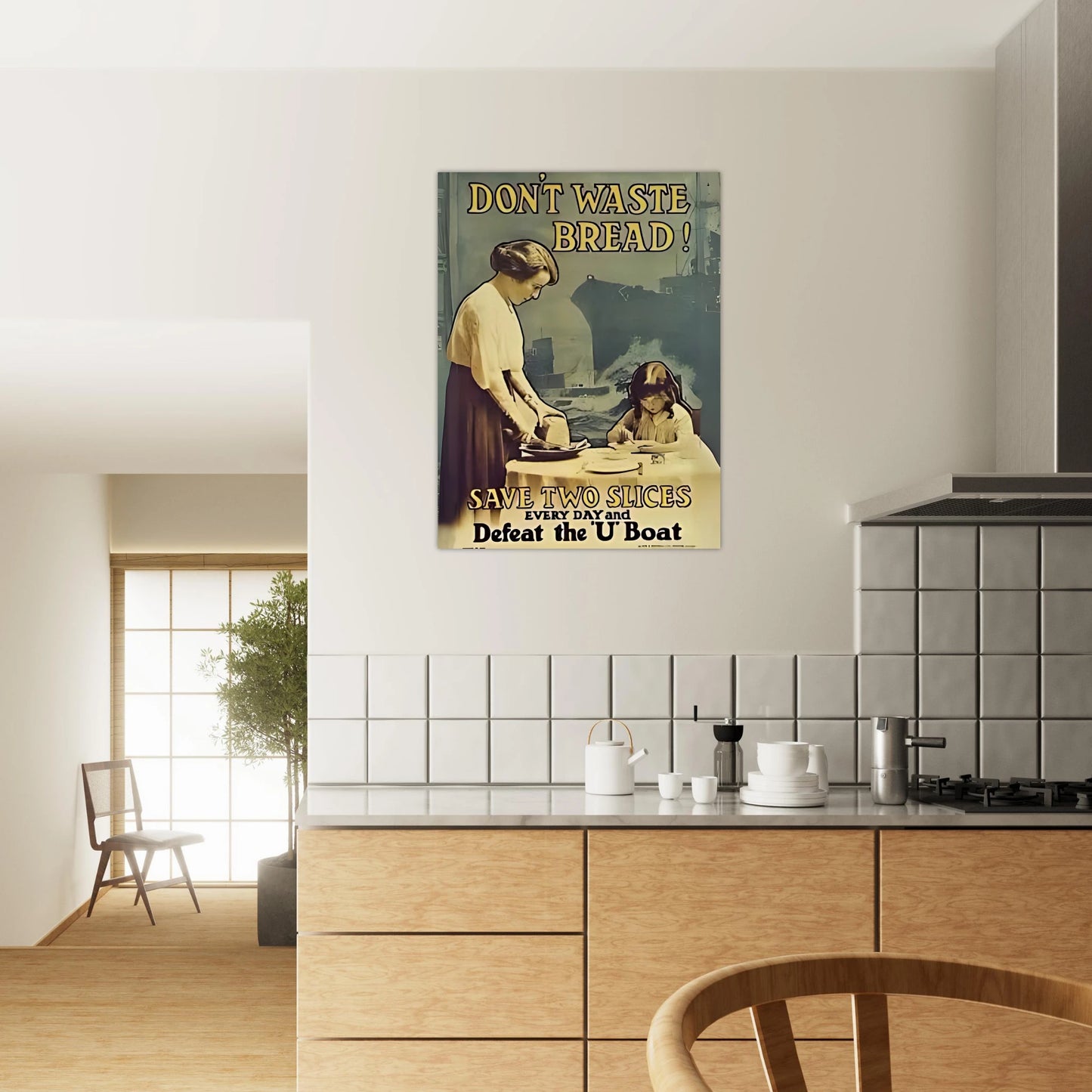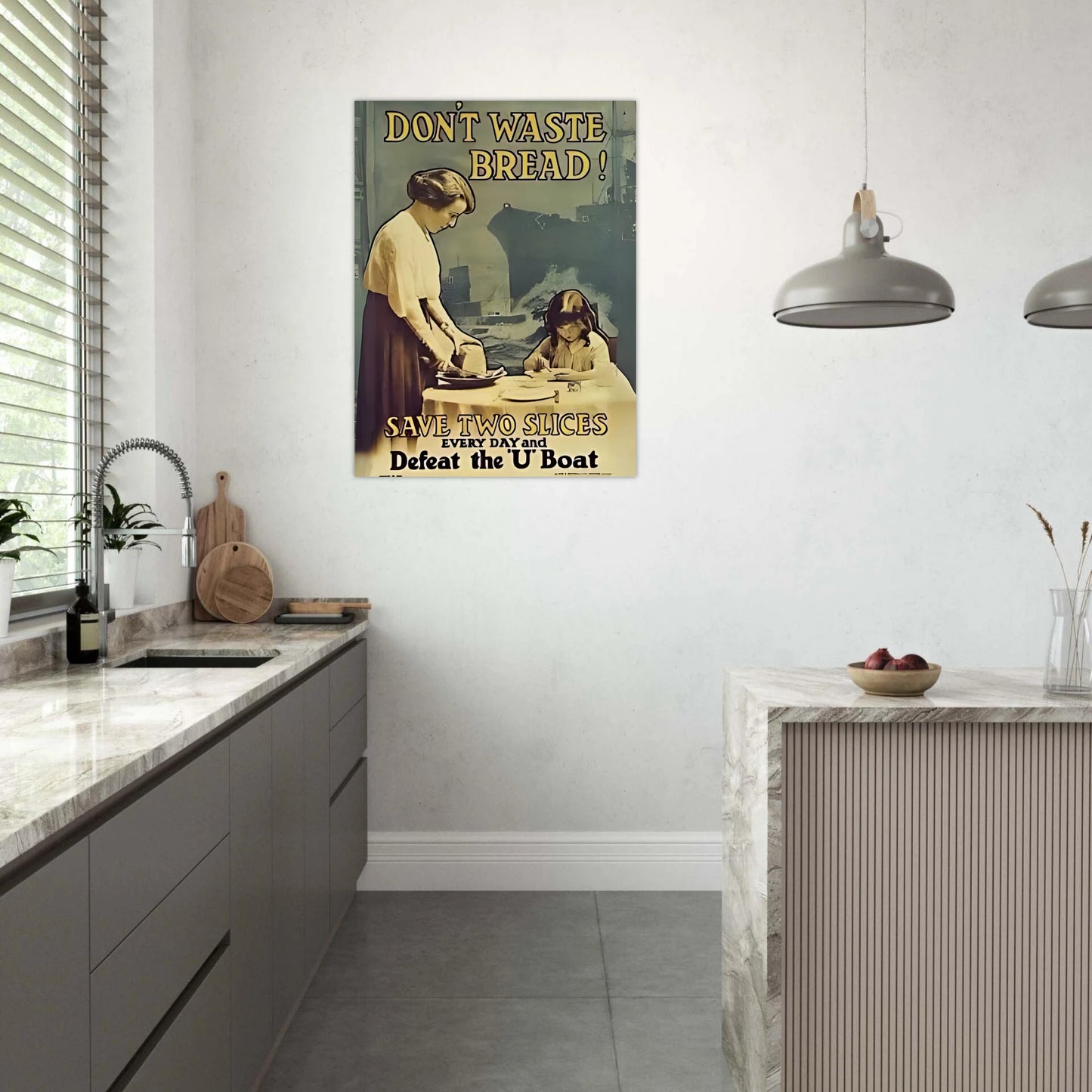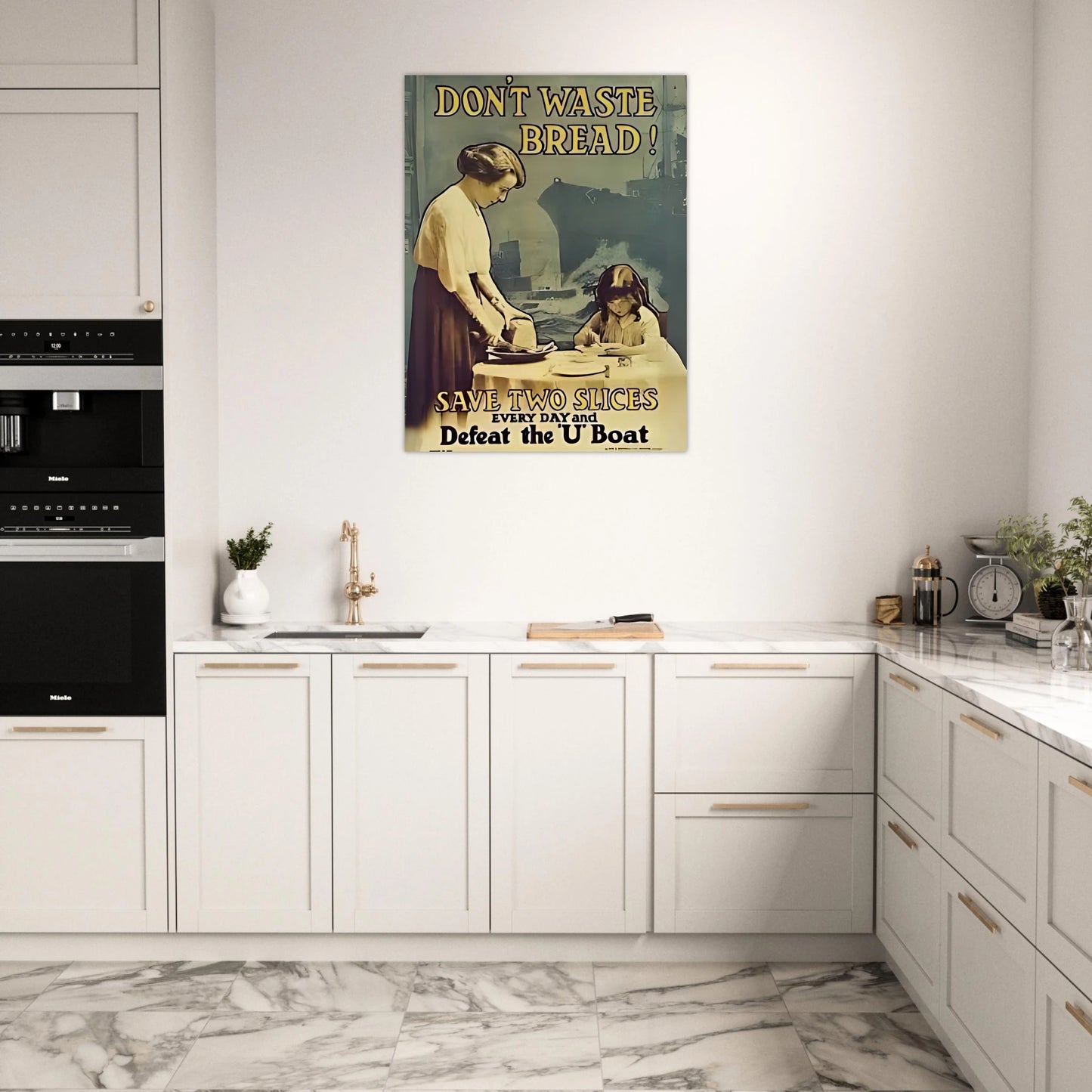Don't Waste Bread - British WWI Propaganda Poster (1917)
Don't Waste Bread - British WWI Propaganda Poster (1917)
Couldn't load pickup availability
Printed on Museum-Quality Matte Paper Poster.
This image is a World War I British propaganda poster, and it's a striking example of how everyday domestic behavior was linked directly to the war effort. The message:
“Don’t Waste Bread!”
“Save Two Slices Every Day and Defeat the ‘U’ Boat”
⚓ Historical Context
-
U-Boats (short for Unterseeboot, or "undersea boat") were German submarines that threatened British shipping in the Atlantic.
-
Germany’s unrestricted submarine warfare aimed to cut off Britain’s food and supply imports, potentially starving the island nation into submission.
-
In response, the British government launched intense propaganda campaigns urging citizens to conserve food — particularly bread, a staple that was heavily dependent on imported grain.
🖼️ Visual Elements
-
A mother and daughter are shown solemnly handling bread, likely during a mealtime.
-
The looming U-boat and merchant ship silhouette in the background connects the kitchen table to the naval battlefield.
-
The emotional appeal is clear: wasting food = helping the enemy.
🎯 Purpose and Impact
This poster wasn’t just about thrift. It aimed to:
-
Mobilize civilians to feel directly involved in the war effort.
-
Counteract food shortages caused by German submarine blockades.
-
Reinforce the idea that small sacrifices at home could lead to victory abroad.
🧠 Broader Themes
It reflects one of the most powerful wartime propaganda strategies: turning private, domestic actions into public, patriotic duties. Bread, once humble and everyday, becomes a weapon of resistance.
🎨 Artist
The exact artist of this World War I poster — “Don’t Waste Bread! Save Two Slices Every Day and Defeat the ‘U’ Boat” — is not definitively known. Many propaganda posters from the era were produced either anonymously or by government agencies that did not credit individual artists.
This specific poster was likely commissioned by a British wartime agency such as the Ministry of Food or the War Propaganda Bureau (also known as Wellington House), which focused on mobilizing the public for the war effort. It's possible the image was produced using photographic or lithographic methods based on staged photos, a common practice for mass wartime printing.
Printing Details:
Master's Edition archival paper, in off-white and uncoated, offers museum-quality for art enthusiasts seeking a luxurious way to enjoy world-class artworks:
- Paper Finishing: Matte, uncoated, natural white (off-white).
- Acid-Free: pH above 7 to prevent yellowing over time.
- Paper Weight: 250 gsm (110 lb), Thickness: 0.29 mm (11.4 mils).
- Available Sizes: 29 sizes in inches (US&CA) and cms (rest of the world).
- Sustainable Paper: FSC-certified paper for sustainability.
Learn about paper types and their unique textures and finishes here.
No minimum orders, printed and shipped on demand.
Share
